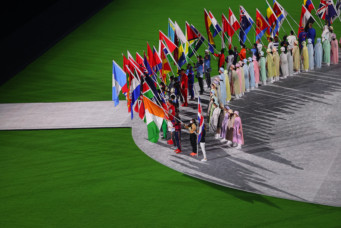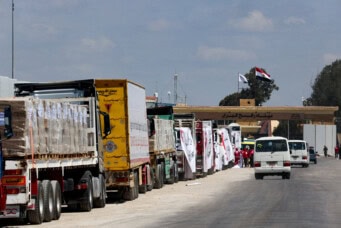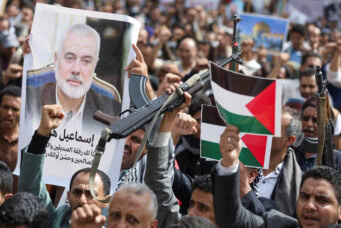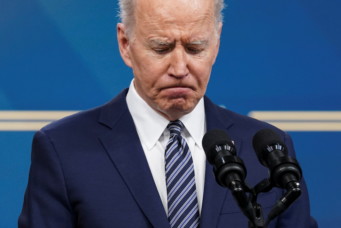The Olympics: Arenas of Contention
Political tensions simmered under the facade of international communion at the Paris 2024 Games as countries competed both on and off the stage
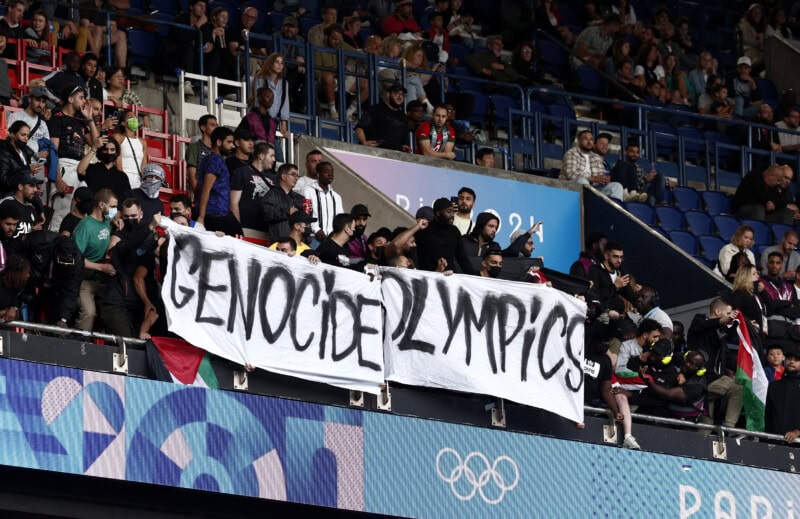
The 2024 Olympic Games in Paris were hosted against the backdrop of active conflicts involving participating (and suspended) nations. Historically, the Games have promised a period of peace between warring nations under the banner of the Olympic Truce, which recommends the pause of any warfare between countries from one week before the opening of the Olympics to one week after the conclusion of the Paralympics. Paris 2024 marks the first Olympic Games since the end of the Cold War to be hosted during active conflicts involving the hegemonic interests of major powers such as the United States, China, and Russia.
Military confrontations and diplomatic contentions in Eastern Europe, the Middle East, and East Asia complicated arrangements for the 2024 Olympics from the outset; organizers ultimately implemented extensive security measures to safeguard the Olympic sites and athletes from the potential repercussions of these nations in conflict. Several symptoms of the escalating hostilities in those regions emerged during the Games, both inside and outside the sporting arena.
Russia and Ukraine
The International Olympic Committee (IOC) suspended Russia from taking part in this competition due to its invasion of Ukraine four days after the conclusion of the 2022 Olympic Winter Games in Beijing, which the IOC deemed to be a violation of the Olympic Truce. Belarus was also barred because the Belarusian government backed the Kremlin’s military campaign. Moscow condemned the IOC decision to sanction the Russian and Belarusian Olympic teams as being politically motivated.
The IOC, however, permitted athletes with Russian and Belarusian passports to participate in the Paris Games as neutral individuals insofar as they were not actively supporting the Russian forces in Ukraine, reasoning the solution was a way to objectively address this sensitive situation. Additionally, athletes from Belarus and Russia were banned from competing in track and field events since these are staged by the governing body World Athletics, which had issued a total ban. Ultimately, only fifteen Russian neutrals competed at Paris 2024 and they won just one Olympic silver.
This shows a dramatic fall of Russian athletic performance. Until the 2020 Olympic Games in Tokyo, Russia was never ranked below the fifth position at the medal table. Since the time of the Soviet Union, sport has been an important way for Russia to demonstrate its ideological superiority and international prestige. In contrast, the performances of the neutral individuals from Russia were barely noticeable in Paris.
Even before the Russian invasion, Ukrainian athletes at the 2022 Winter Olympics in Beijing protested against Russia’s looming hostilities in the border area. When the IOC announced the decision to invite Russian athletes to Paris as neutral individuals, Ukrainian officials questioned the neutrality of any athletes participating in international sporting competitions because even though they do not carry national flags, they still represent their nations in practice. On this ground, Kyiv initially considered boycotting the 2024 Olympics.
Later, Ukraine reversed their stance and dispatched 140 athletes to Paris. This marked the smallest delegation from the country since their first appearance at the 1996 Atlanta Summer Olympics. In the shadow of active warfare, it was not easy to mobilize the Ukraine Olympic team, largely due to the destruction of many training facilities by Russian missiles. Despite such adversities, the Ukrainian delegation won twelve medals, including three golds. The athletes used these triumphs to demonstrate Ukraine’s determination to fight at all costs to the international community; the playing of the national anthem at the Olympic stadium indicated their hope and will to the world.
Russia promptly filed an appeal against the IOC sanction to the Court of Arbitration for Sport but the court upheld the suspension. In response, the Kremlin announced its intention to host the World Friendship Games in Moscow a few months after the Olympics in Paris. This plan prompted the IOC to warn Russia not to politicize international sport and the alternative competition was later postponed until 2025.
It appears that the suspension had a limited impact on the Kremlin’s military aggression in Ukraine. For instance, Russia intensified its bombing on a few strategic areas in Ukraine during the Olympics and Kyiv also admitted that its forces had attacked military targets in Russian territory in retaliation. Moreover, the IOC’s ban only increased the level of tension between Russia and the sport governing body. The majority of Russian athletes declined the invitation from the IOC to attend the Olympics as individual neutral athletes, the 15 Russian neutrals in Paris were dubbed traitors by the Russian media which, after the opening ceremony, branded Paris 2024 the “Olympics of Hell” and the “Games of Satan”.
Overall, Russia dismissed this year’s Olympics as a politicized event, claiming that such a unidirectional disciplinary action reflects bias against Russia within the IOC and arguing that while sport and politics must be separate, the IOC was mixing the Olympic Games with “racism and neo-Nazism”. In turn, the IOC also accused Russia of politicizing sport, disparaging the International Friendship Association as a political institution funded by Russia. Ironically, both the IOC and Russia accused each other of politicizing sport.
Israel–Hamas War
At the opening ceremony in Paris, both the Israeli and Palestinian delegations were on their boats, cruising the River Seine. This first-ever Olympic ceremony on the water attracted global attention but the presence of athletes from Palestine and Israel was especially notable because the conflict was still ongoing in Gaza when they arrived in Paris, despite the rules of the Olympic Truce. However, the IOC appeared reluctant to make a statement on the worsening situation in the region. Before the Olympics, the IOC announced that the wars in Gaza and Ukraine were not of the same nature, adding that the National Olympic Committees of Israel and Palestine showed mutual respect despite the conflict. This statement would prove incorrect as the Games progressed.
Peace negotiations between Israel and Hamas failed a few weeks before the start of the Olympics and there was no sign of improvement in the region when the curtain was raised in the French capital. While the two sides seemed to be violating the Olympic Truce, it is difficult to clearly apply the rules in this context because technically the conflict in Gaza is not an inter-state war, rather, it is the resistance of Hamas against the Israeli state occupation. Yet, Israel’s retaliatory military operations in Gaza continued during the Games and the conflict was escalating throughout the region after the assassinations of Hezbollah’s Fuad Shukr in Lebanon and Hamas’ Ismail Haniyeh in Iran.
As Israel’s attacks continued to claim the lives of many innocent civilians in Gaza, Palestine’s Games Committee appealed to the IOC to ban Israelis from the Paris Olympics because these athletes had visited Israeli troops and posted photos of signed missiles.
So much for Olympic peace. With the assassination of Haniyeh and Shukr (Israel took responsibility for the killing of Shukr but has not commented officially on Haniyeh), the geopolitical circumstances in the Middle East have become increasingly volatile. This may indicate that the idea of the Olympic Truce is no more than a symbolic gesture for nations in desperate armed conflict.
Recurrent wars in the region have often made Palestine’s Olympic journey bumpy since its Olympic debut in Atlanta in 1996. Their preparation for Paris 2024 was particularly challenging because of the complete blockade of the Gaza Strip. On June 11, 2024, Majed Abu Maraheel, the first-ever Palestine flag bearer at the Olympics, died at the age of 61 due to the shortage of medical supplies in Gaza. Abu Maraheel had dedicated his life to developing sport for his country and his death symbolized all the suffering that the Palestinian Olympic team had endured before Paris 2024.
The Palestine delegation consisted of eight members and while their prospect of winning a medal was not optimistic, their Olympic mission seemed to be more than just sporting success. In Paris, the Palestinian athletes volunteered as messengers to remind global audiences of the atrocities occurring in their home nation. Jibril Rajoub, the chief of the team, also vowed that he would never shake hands with Israelis at the Olympics and would call for the suspension of Israel from the Games. On his way home, Rajoub was arrested at the border crossing and his passport was confiscated. While he was released after a few hours of interrogation, this detention may be related to his active voice against Israel during the Olympics.
Meanwhile, Israeli athletes appeared uneasy while observing Palestine’s political gestures in Paris. At the 1972 Olympic Games in Munich, Black September, a Palestinian militant group, attacked the Olympic village and killed eleven members of the Israeli Olympic delegation. In the second week of Paris 2024, the Israeli Embassy in the French capital hosted a commemoration to pay tribute to those who were murdered at Munich 1972, which the IOC president and the mayor of Paris attended.
The event was unusual because no such commemoration had ever been observed. Perhaps the timing provides an answer; with increasing international criticism over its military operation in Gaza, Israel may have intended to emphasize the vulnerability of their athletes by reminding the international community of their past tragedy. This ceremony seemed to be Israel’s tacit public diplomacy to protect Team Israel in the face of pro-Palestine campaigns.
The memory of this massacre was also rekindled when several Israeli athletes received death threats via email from unidentified entities during the Games. The elite French police and the Israel Security Agency jointly guarded the Israeli delegation in Paris and the athletes were also advised to stay in the Olympic Village whenever possible. In the face of deepening concern about the welfare of their national team, Yael Arad, the president of the Israel Olympic Committee, assured her fellow citizens of the safety of the Israeli athletes at the competition. Yet, such high-security measures indicated genuine anxiety plaguing the Israeli competitors.
Despite the IOC’s insistence that the wars in Gaza and Ukraine are different and that the Palestinian and Israeli delegations would maintain cordial relations, it seems evident that the two were in conflict both inside and outside the arena.
The United States and China
Team U.S.A. and China were the two largest delegations at Paris 2024 and the top two nations in the Olympic medal table. Their exceptional sporting prowess represents their superpower status in the world, and their race for Olympic glory also reflects their rivalry in global politics. The two countries have repeatedly collided in the field of international trade and Indo-Pacific geopolitics, and the Paris Games became another place for the two to boast their superiority.
The tension between China and the United States was ostensible in the Olympic Aquatic Centre. On August 1, Pan Zhanle from China won an Olympic gold in the men’s 100-meter freestyle, setting a world record. Three days later, swimmers from the two nations competed in the men’s 4 x 100 meters medley final, and the Chinese quartet outperformed their American counterparts. However, the American and Australian media questioned the exceptional strength that the Chinese swimmers displayed, implying they took illegal drugs.
Before the Olympic Games in Tokyo, 23 Chinese swimmers tested positive for banned substances. They were allowed to take part in Olympic swimming because the World Anti-Doping Agency (WADA) concluded that the positive result was caused by the consumption of contaminated meat. Two of the Chinese men’s medley team, Qin Haiyang and Sun Jiajun, were among the group of Chinese swimmers who tested positive but later cleared. Nonetheless, Chinese doping allegations were still prevalent in the West.
The United States in particular was suspicious of WADA’s ruling. In July 2024, ahead of the Olympic Games in Paris, the U.S. Department of Justice began independently investigating the 23 positive cases among the Chinese swimmers. WADA was uneasy about this American investigation because it directly challenged the jurisdiction of the anti-doping agency. In 2019, the U.S. Congress institutionalized the Rodchenkov Anti-Doping Act which gives the United States the power to intervene in the global anti-doping system. The U.S. inspection of the Chinese athletes before Paris 2024 was the first enforcement of this law; in practice, this indicates that the American authorities are defying the hegemony of WADA in the established anti-doping regime.
Subsequently, WADA defined this development as the politicization of doping scandals and stated that it “has been unfairly caught in the middle of geopolitical tensions between superpowers”. Moreover, WADA called its Compliance Review Committee to discuss the conduct of the U.S. Anti-Doping Agency because the American suspicion engendered a significant tension between the United States, WADA, and China at the Olympics.
China expressed displeasure with the doping allegations against its swimmers. Zhanle, the Olympic champion, complained about the disrespectful manners of the American swimmers during the practice session. Zhang Yufei, who won a bronze medal in the women’s 200m butterfly, defended their team’s sporting excellence asking, “Why does no one question Phelps or Ledecky?”. Moreover, in response to the U.S. challenge to WADA, a Chinese state media opined that “[t]he US has polluted the supposedly pure sports arena with its own dirty political maneuvers”. Apparently, the accusations in the Olympic swimming pool have escalated into a diplomatic row between the United States and China.
This is not the first time the two superpowers have confronted each other at the Olympics. Ahead of the 2022 Winter Olympics in Beijing, prominent American politicians such as Nancy Pelosi called for a diplomatic boycott of the Olympics in the Chinese capital due to China’s suppression of the democratic movement in Hong Kong and the alleged operation of a re-education camp in Xinjiang province. China categorically denied any human rights violations in the country and warned that the United States should not interfere with its internal affairs. This dispute never subsided. As a result, no Western leaders, except those from the IOC and the UN, attended the opening and closing ceremonies of Beijing 2022.
In recent years, emerging power states, most notably China, have begun to challenge American primacy in the liberal international order. As the second-largest economy in the world, China embraces an expansionist foreign policy (such as its Belt and Road Initiative) and Washington seems to be wary of the growing influence of the communist giant. The U.S. tariff imposed on Chinese goods since 2019 and Washington’s Indo-Pacific strategy appear to be some measures to curtail China’s growth. Adding to this complexity, , further deepening the chasm in Sino–American relations. Indeed, Vladimir Putin was one of the few foreign guests who attended the opening ceremony of the 2022 Olympic Winter Games in Beijing while most Western VIPs were absent.
As U.S. –Chinese diplomatic and geopolitical tensions continued, the Olympic Games turned into a symbolic battlefield between the two superpowers. While the fact that both nations won 40 gold medals may have been coincidental, the tying of these two great powers symbolizes the fierce political rivalry between the two.
Sport and Politics
While few Olympic Games are completely free from political influence, Paris 2024 was especially vulnerable to external political factors due to the bouts of active warfare during the Games. The war in Ukraine, the conflict in Gaza, and tense U.S. –Sino relations all affected the organization of the Olympics in the French capital. Although the IOC praised the Olympic athletes for their fair play and friendship despite various political strains, an undercurrent of aggression simmered beneath the Olympic ceremonials.
Above all, the idea of neutrality at the Olympics is the most controversial. The IOC invited Russian and Belarusian athletes to the Games as neutral individuals. While they were officially non-affiliated competitors at the international championship, it is unlikely that the five Olympic rings on their tracksuits completely replaced the national flag in their hearts. In practice these Olympians competed for the pride and glory of their nation. As Ukraine protested, it was questionable whether “neutral” is an identity that an athlete can truly adopt.
The Olympic Truce also triggers debate. The modern Olympic ceasefire was first introduced in 1992 by the IOC and endorsed by the United Nations in 1993. Yet, this nearly two-month truce period is not legally binding, rather, it is an expression of the IOC’s desire to promote intentional peace through sport. There is no outlined process for enforcement; the Olympic Charter contains no rules about disciplinary actions against any party who violates this peace principle.
As a result, it seems the application of the Olympic Truce is left entirely to the whims of the IOC. For instance, when Russia annexed Crimea by force a few days after the end of the 2014 Winter Olympics in Sochi, the sport governing body awarded no penalty for this illegal occupation. The Russian delegation was barred from the 2018, 2020, and 2022 Olympics because of their systematic doping, not their military aggression. WADA finally lifted this doping-related suspension in 2022, however, Russia was still banned from Paris 2024 because it invaded Ukraine. The IOC may have considered this second violation to be a more serious offense, but this was arguably an inconsistent imposition of the sanction.
Likewise, the IOC took no action against parties involved in the conflict in the Middle East. Palestine wanted Israel to be excluded from the Olympics due to the atrocities committed in Gaza but the IOC paid little attention to this request, presenting another symptom of the IOC’s inconsistency. This begs a question about the IOC’s political independence. While the ongoing active wars during the Games have put additional burdens on the IOC, particularly in terms of the safe and secure delivery of the Games, it is difficult to dismiss the criticism that the IOC’s approach to such political troubles displayed irregularity and double standards.
It may be unfair to call the IOC a politicized or Western organization as the Kremlin and pro-Palestinian groups have accused. Nevertheless, this global institution does not appear politically independent either. Rather, it calculated its interests within the atmosphere of the current geopolitical turmoil. Ideally, sport and politics should not mix. In reality, they often do. This is particularly evident when world politics are rife with tension, mistrust, and conflict. What was meant to be a global festival of sport with an aura of peace, love, and solidarity, instead became an arena for warring nations to display their rivalries and hostilities.

